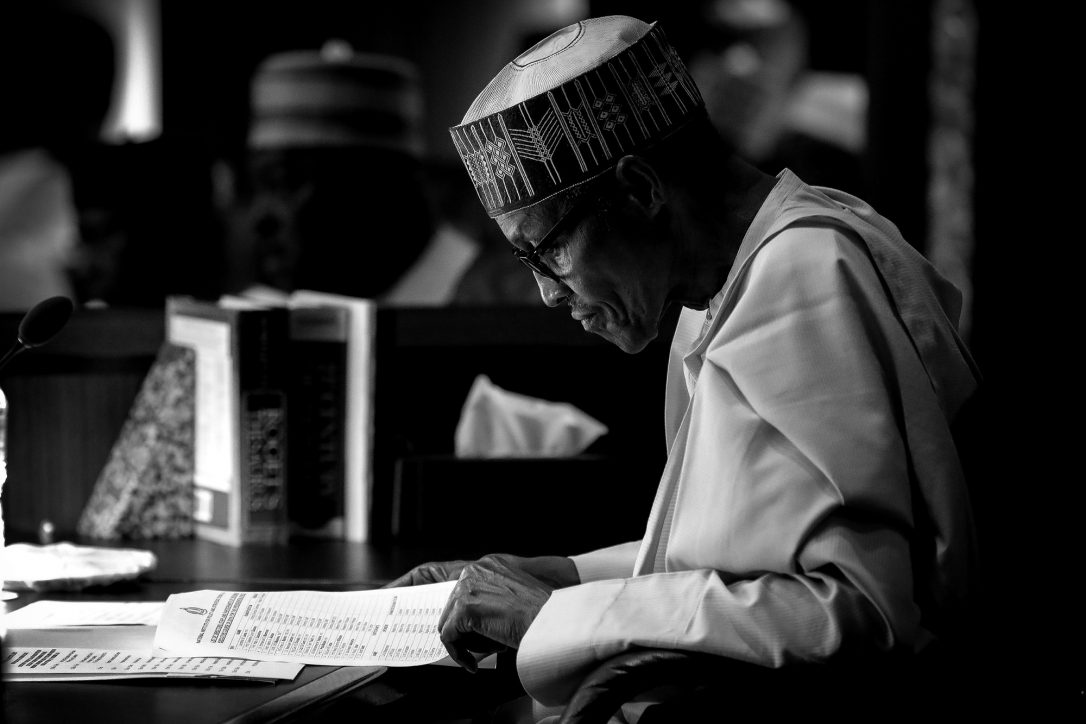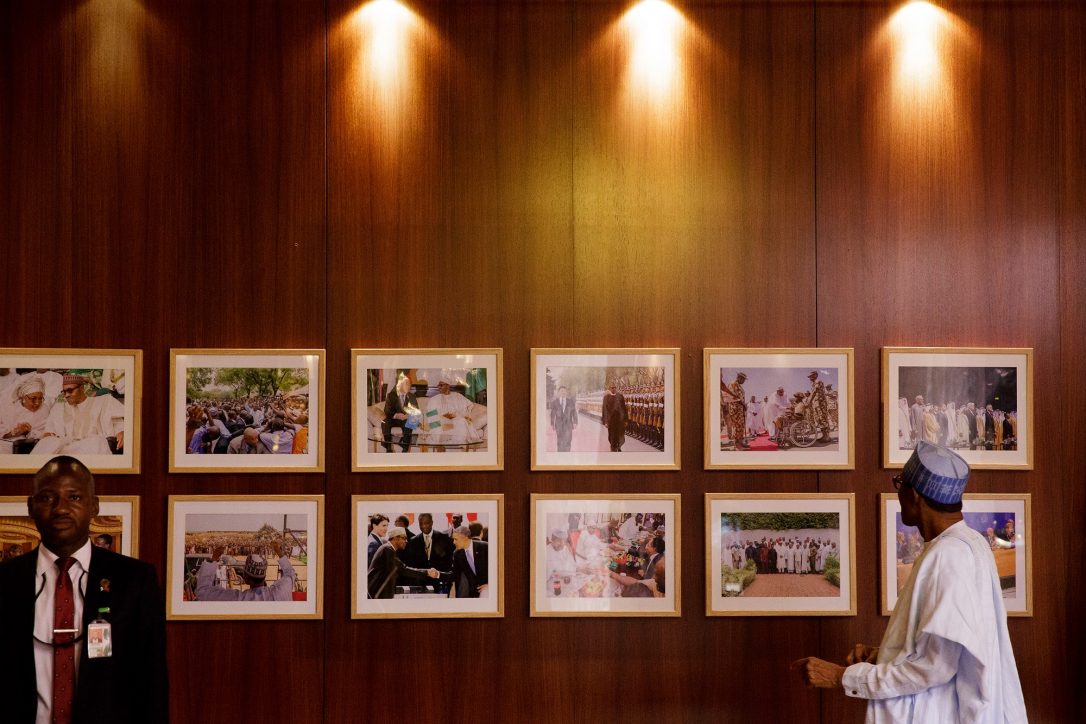The main theme of President Buhari’s foreign policy has been absolute national sovereignty with, tenets of peaceful multilateral diplomacy and foreign relations. This theme characterized by high level diplomatic relations and negotiations, has seen the President Buhari’s administration arguably, successfully connect foreign policy efforts to the accomplishment of domestic priority programmes (security, anti-corruption, economy/job creation).
Muhammadu Buhari GCFR (born 17 December 1942) is a retired Major General in the Nigerian Army and Nigeria’s former Head of State from 31 December 1983 to 27 August 1985, who became the 15th President of Nigeria on 29 May 2015. In Nigeria, he is commonly referred to as President Buhari or Sai Baba or simply PMB. He is a colossus by character and personality, a “converted democrat” dominating many aspects of political life and prevailing, in a decisive manner, in key moments in Nigeria’s rocky history.
During his Independence Day speech on October 1st 2016, President Buhari declared;
“All countries, no matter how advanced, welcome foreign investments to their economy. This is the essence of globalization and no country in the 21st century can be an island. Our reforms are therefore designed to prepare Nigeria for the 21st century.”
A defining characteristic of President Buhari’s vision for Nigeria, is the preoccupation with fulfilling the country’s long-standing potential of pulling Nigerians together and realising the common mission of being a great nation as well as restoring the country’s dignity in the comity of nations. President Buhari has on several occasions communicated enthusiastically of Nigeria’s destiny and his determination to restore Nigeria to her rightful place in Africa and the world.
Ever since 29 May 2015, President Buhari’s foreign policy or international relations agenda for Nigeria with negotiations largely based on the President’s personal integrity has been largely consistent with the foreign policy objectives of Nigeria as enshrined in Section 19 of 1999 Constitution of the Federal Republic of Nigeria, which can be summarised as follows:
- Promotion and protection of Nigeria’s national interest by a united people capable of doing what is right for the country as well as commitment to the Sustainable Development Goals (SDGs);
- Promotion of African integration and support for African unity by being ready to play any leadership role that Africa expects of it;
- Promotion of international co-operation for the consolidation of universal peace and mutual respect among all nations and elimination of discrimination in all its manifestations through readiness to cooperate and help to combat threats of cross-border terrorism, sea piracy, refugees and boat people, financial crime, cyber-crime, climate change, the spread of communicable diseases and other challenges of the 21st century;
- Respect for international law and treaty obligations as well as the seeking of settlement of international disputes by negotiation, mediation, conciliation, arbitration and adjudication; through committed to the revival of Lake Chad and improvement of the hydrology and ecology of the basin. This will tune in with efforts to rehabilitate the thirty million people affected by the Boko Haram insurgency in the Lake Chad basin countries;
- Promotion of a just world economic order by attracting foreign investments in a reformed and business friendly environment required by the 21st century.
These agenda/frameworks however, comprise of the primary substance of the Nigerian foreign policy, which provides the platform for analyzing and interpreting Nigeria’s foreign policies under President Buhari from 29 May 2015 to date.
President Buhari’s Foreign Policy (2015-PRESENT): Your Opinion!
Therefore, from your experiences, insights, observations and understanding, do you believe President Buhari’s foreign policy is accomplishing or underachieving its goals and objectives?

